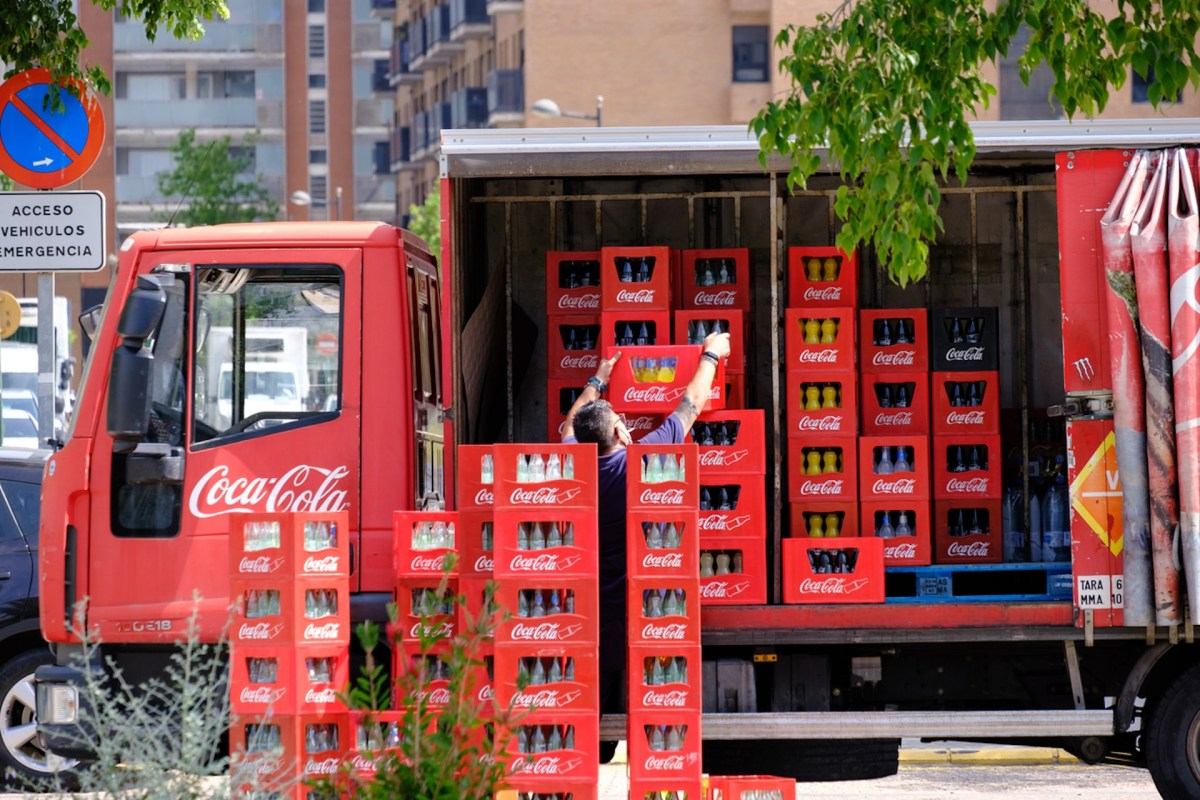Several major brands, including Nestle and Coca-Cola, may have to rethink their bottle packaging after reportedly coming under legal scrutiny from the European Commission and Consumer Protection Cooperation Network (CPCN).
What's happening?
Nestle, Coca-Cola Europacific Partners, and Danone all sell plastic water bottles marketed as being either 100% recyclable or renewable, as reported by GreenBiz, but the phrasing set off alarm bells for a number of groups that called the claims "misleading."
The Environmental Coalition on Standards (ECOS), the Bureau Européen des Unions de Consommateurs (BEUC), and ClientEarth filed a joint "external alert" for review by the EU Commission and CPCN, claiming the brands may be committing "widespread infringement of consumer protection law."
"A '100 percent' recycling rate for bottles is technically not possible and, just because bottles are made with recycled plastic, does not mean they don't harm people and the planet," ClientEarth lawyer Rosa Pritchard told GreenBiz.
Why are these claims concerning?
As Pritchard noted, the "myth" of plastic being recycled indefinitely prevents people from making informed decisions.
This means deceptive advertising could be a contributing factor to the 21 to 25 million tons of plastic waste polluting aquatic ecosystems, according to the U.N. Environment Programme.
Once plastic enters our environment, it can stay there for hundreds of years, releasing harmful chemicals as it begins its snail-like process of breaking down — creating tiny particles known as microplastics in the process.
Researchers have been developing various solutions to remove the particles from water. According to a report in the National Library of Medicine, the easily ingestible microplastics can negatively impact our "digestive, respiratory, endocrine, reproductive, and immune systems."
What is being done about the misleading packaging?
ClientEarth partnered with ECOS, Zero Waste Europe, and independent consultancy Eunomia to study the production of recyclable plastic bottles, concluding that the packaging instead should include simple-to-follow instructions on how to dispose of the material, depending on the market, as detailed by GreenBiz.
"Consumers need access to fair, honest information about the environmental impacts of products, and clear information on recycling. Action will need to be taken on these claims to rebuild consumer confidence and better protect the planet," Pritchard told the outlet.
Natural Mineral Waters Europe, which represents Danone and Nestle as part of its brand portfolio, also acknowledged in a statement to GreenBiz that "further improvements" are possible as it looks toward upcoming EU regulations.
Ultimately, while a partially recycled bottle is a step in the right direction, avoiding single-use plastic bottles altogether is even better.
Switching to a reusable bottle will also save you money in the long run while helping to limit your exposure to harmful microplastics.
Join our free newsletter for cool news and actionable info that makes it easy to help yourself while helping the planet.









